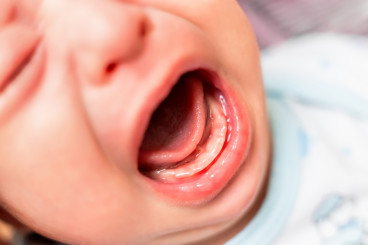Xerostomia
Xerostomia, commonly referred to as dry mouth, is a medical condition characterized by a persistent lack of adequate saliva production. It is a common problem that can significantly impact an individual's oral health and overall quality of life.
Causes
The salivary glands, located in various parts of the mouth, are responsible for producing saliva. Xerostomia can occur due to a variety of reasons, including:
Medication Side Effects: Certain medications, such as antihistamines, decongestants, antidepressants, and blood pressure medications, can cause a reduction in saliva production as a side effect.
Radiation Therapy: Individuals undergoing radiation therapy for head and neck cancers may experience damage to the salivary glands, leading to a decrease in saliva production.
Sjögren's Syndrome: This autoimmune disorder primarily affects the exocrine glands, including the salivary and tear glands, resulting in chronic dry mouth and dry eyes.
Diabetes: Individuals with uncontrolled diabetes may experience a decrease in saliva production due to the effects of the disease on the salivary glands.
Aging: As people age, the salivary glands may become less effective, leading to a reduction in saliva production, which can contribute to the development of xerostomia.
Dehydration: Insufficient fluid intake or excessive fluid loss, such as during physical activity or in hot environments, can lead to dehydration and a decrease in saliva production.
Symptoms
The primary symptom of xerostomia is a persistent feeling of dryness in the mouth. Individuals with this condition may experience the following additional symptoms:
- Difficulty swallowing or chewing
- A sticky or burning sensation in the mouth
- Increased frequency of dental cavities or tooth decay
- Persistent bad breath (halitosis)
- Difficulty speaking or trouble wearing dentures
- Increased risk of oral infections, such as oral thrush (candidiasis)
Diagnosis and Treatment
If an individual experiences persistent dry mouth, it is essential to consult a dental professional or a medical doctor for proper diagnosis and treatment. The healthcare provider may conduct a thorough examination, review the patient's medical history, and potentially order diagnostic tests to determine the underlying cause of the xerostomia.
Treatment for xerostomia typically involves addressing the underlying cause, if possible. This may include:
Medication Adjustments: If the dry mouth is a side effect of a particular medication, the healthcare provider may consider adjusting the dosage or switching to a different medication that does not have the same impact on saliva production.
Salivary Gland Stimulation: Certain medications or devices, such as saliva substitutes or salivary gland stimulators, may be prescribed to help stimulate the production of saliva and alleviate the symptoms of dry mouth.
Lifestyle Modifications: Patients may be advised to increase their fluid intake, avoid caffeine and alcohol, and use sugar-free chewing gum or lozenges to help stimulate saliva production.
Oral Hygiene Practices: Maintaining good oral hygiene, including regular brushing, flossing, and the use of fluoride-containing products, can help prevent the development of dental cavities and other oral health issues associated with xerostomia.
Conclusion
Xerostomia, or dry mouth, is a common condition that can have a significant impact on an individual's oral health and overall well-being. By understanding the causes, symptoms, and available treatment options, individuals can work with their healthcare providers to manage this condition and maintain optimal oral health.
If you are experiencing persistent dry mouth, don't hesitate to consult with a dental professional. Visit Dr. BestPrice to find the best dental treatment options tailored to your needs.



